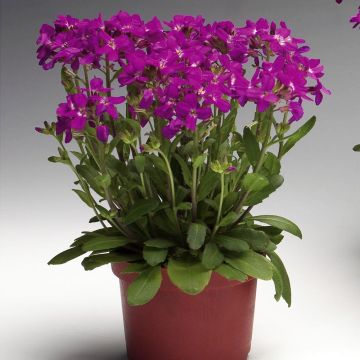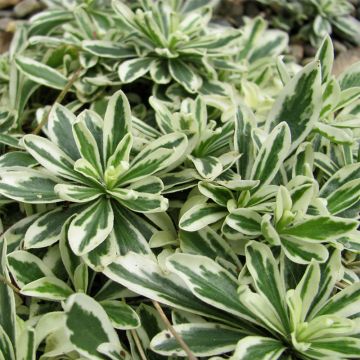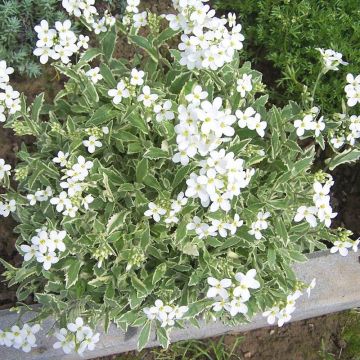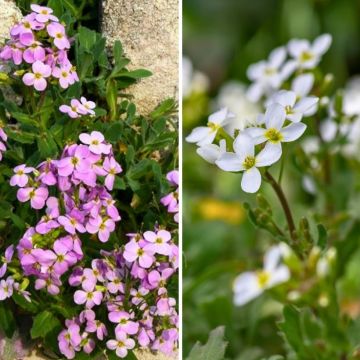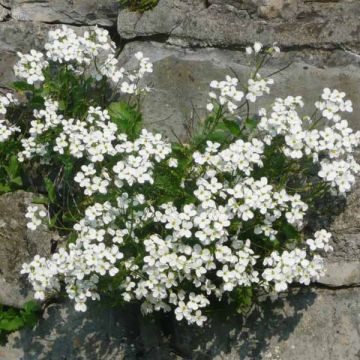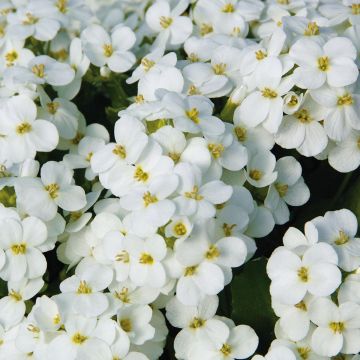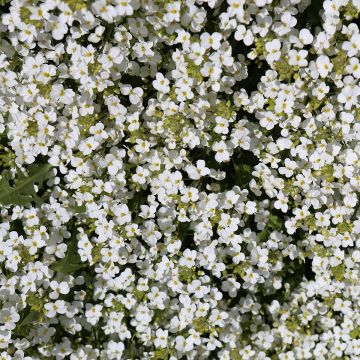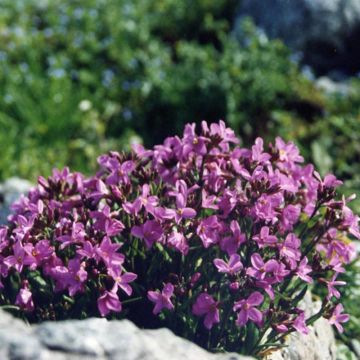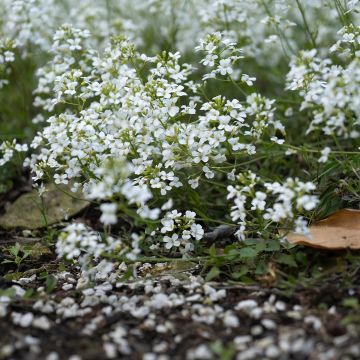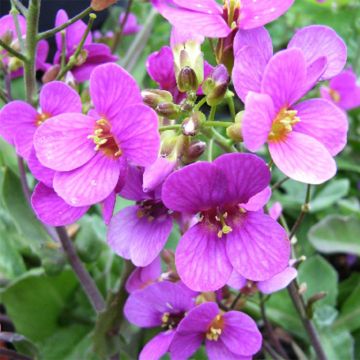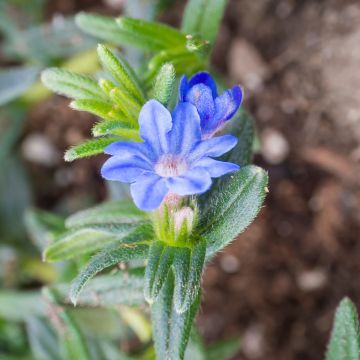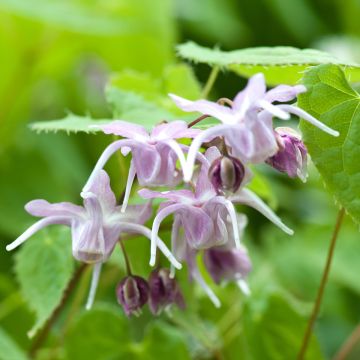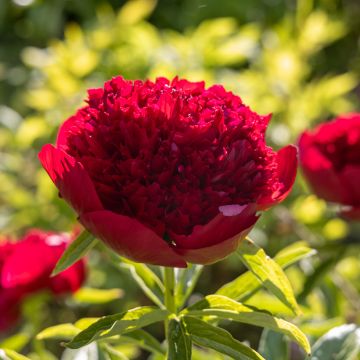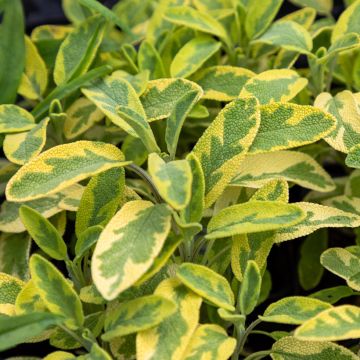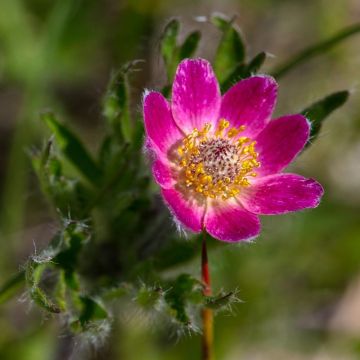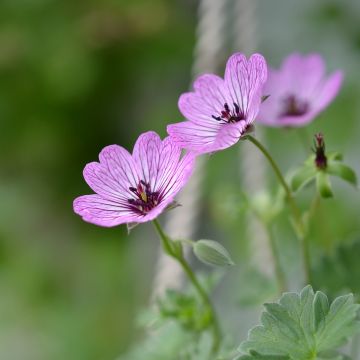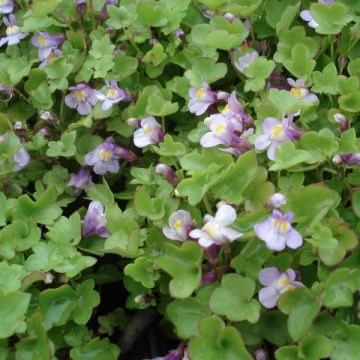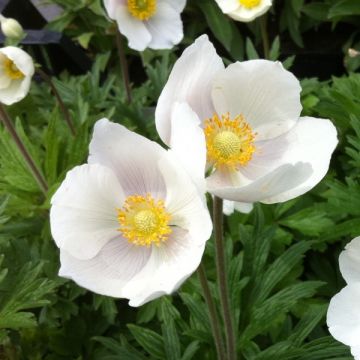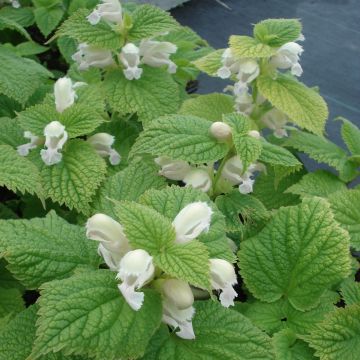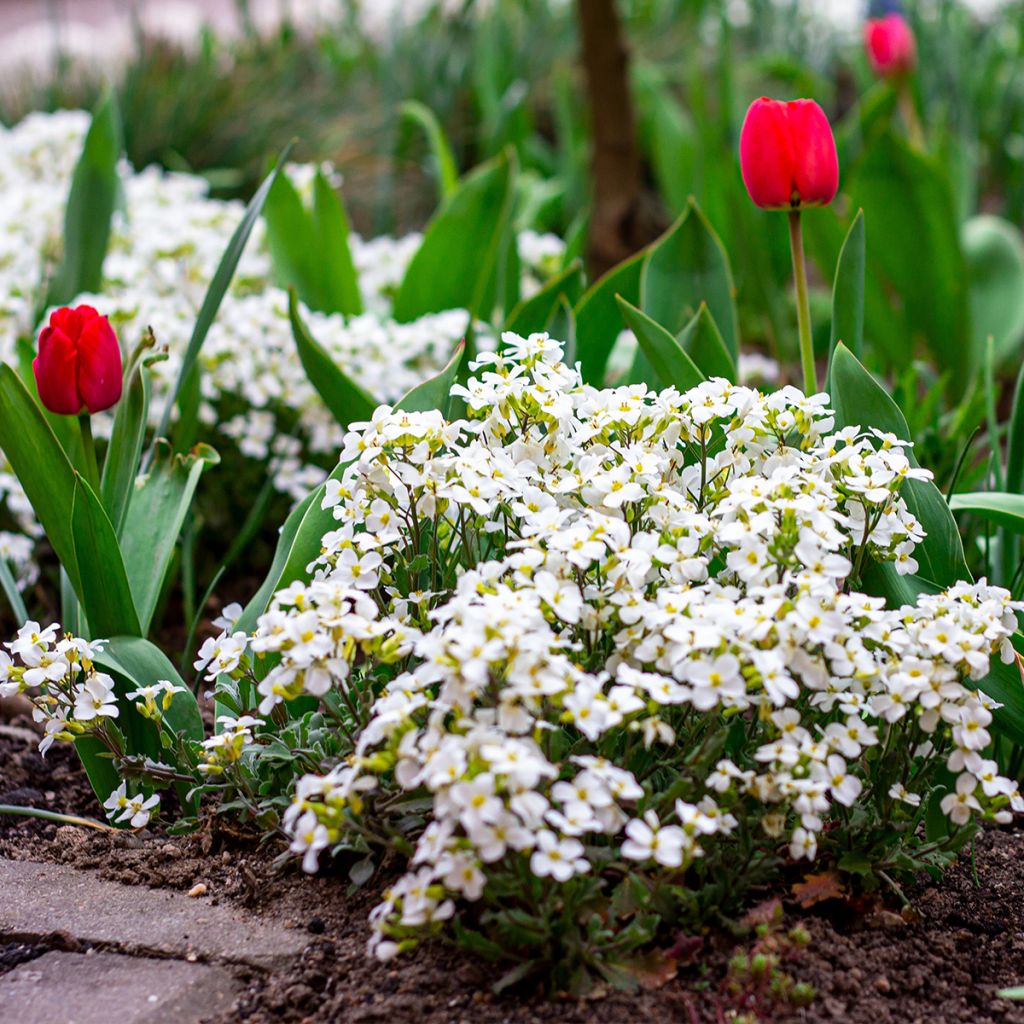

Arabis alpina subsp. caucasica Snowball
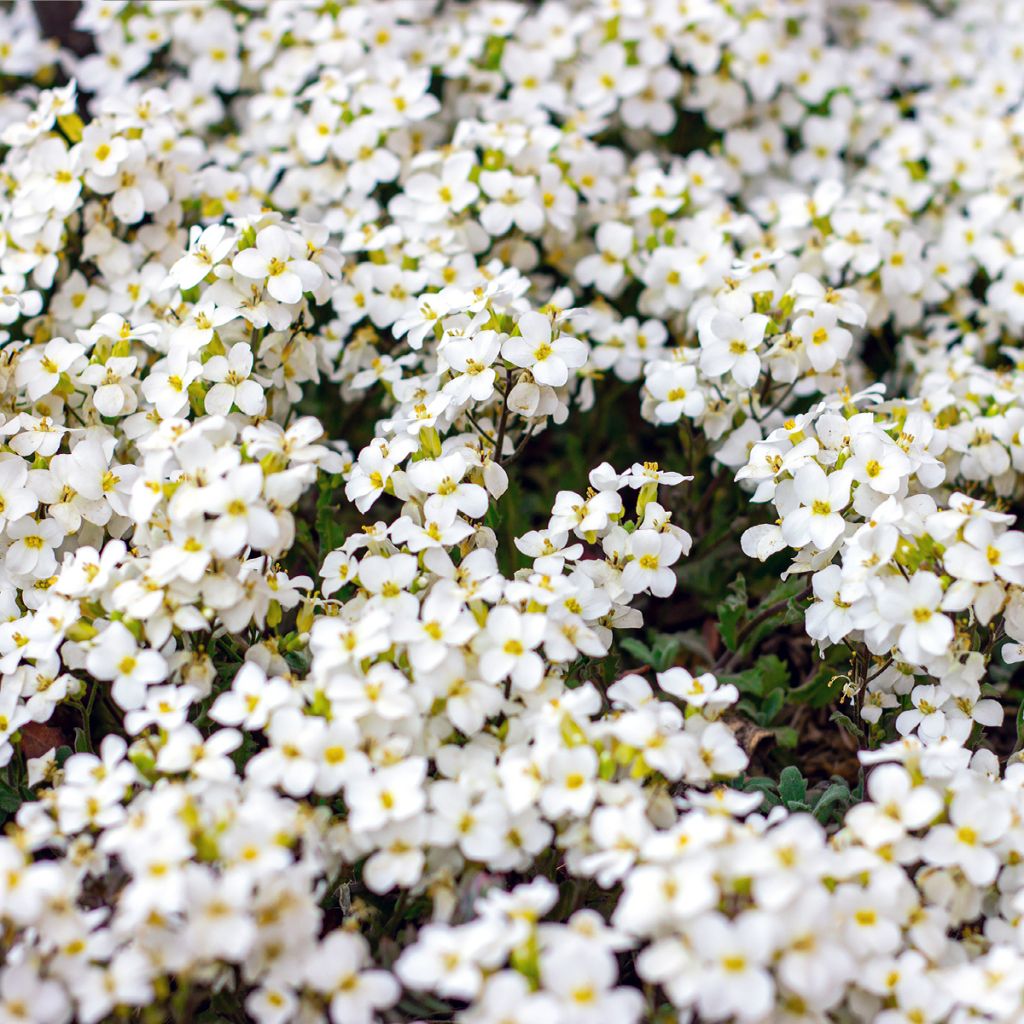

Arabis alpina subsp. caucasica Snowball
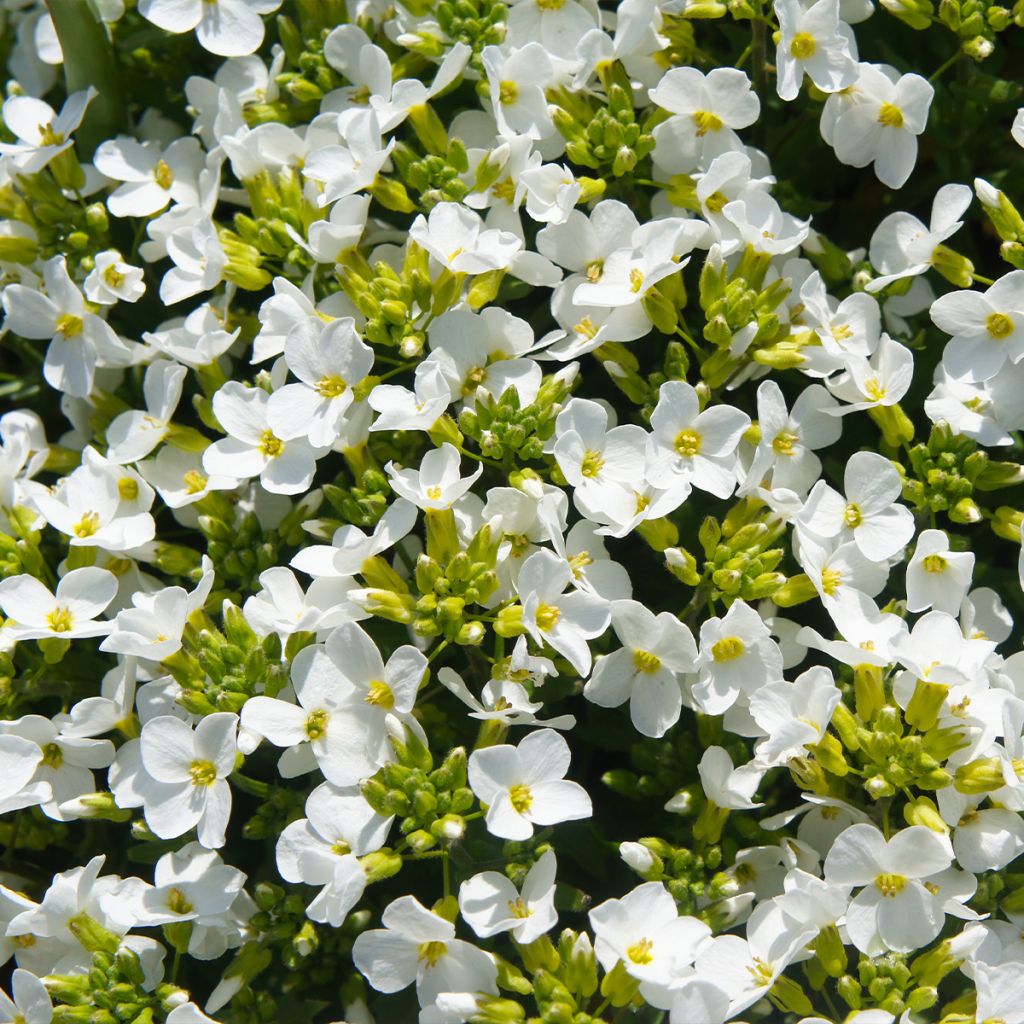

Arabis alpina subsp. caucasica Snowball
Arabis alpina subsp. caucasica Snowball
Arabis caucasica Snowball
Mountain Rock Cress, Alpine Rock Cress, Alpine Rockcress, Caucasus Rockcress, Wall Rock Cress
This item cannot be shipped to the selected country
Delivery charge from €5.90
More information
Schedule delivery date,
and select date in basket
This plant carries a 12 months recovery warranty
More information
We guarantee the quality of our plants for a full growing cycle, and will replace at our expense any plant that fails to recover under normal climatic and planting conditions.
From €5.90 for pickup delivery and €6.90 for home delivery
Express home delivery from €8.90.

Does this plant fit my garden?
Set up your Plantfit profile →
Description
The Arabis caucasica 'Snowball' is a variety of rock cress that is remarkably compact and floriferous, with its vegetation disappearing in spring under a multitude of pure white flowers, forming a snowball-like shape in flower beds. This perennial ground cover is highly effective in preventing the growth of weeds. It is also decorative with its tiny olive-green foliage that remains even in winter. It is ideal for covering walls, climbing slopes, covering the base of hedges, dressing potted plants, or bordering gravel paths.
The Arabis alpina subsp. caucasica 'Snowball' belongs to the Brassicaceae family. Its wild ancestor is a very hardy plant native to temperate regions of the northern hemisphere. "Snowball," sometimes found under Arabis caucasica 'Schneeball', was recently selected in Germany for its dense, low habit and excellent floribundity. This creeping perennial forms a cushion that spreads through rhizomes. Its growth is relatively slow. It forms a dense ground cover, reaching 15-20 cm (6-8in) in height, with a minimum spread of 35 cm (14in), theoretically unlimited. The flowering period is from April to June, depending on the climate. Its countless small, slightly fragrant flowers are grouped in generous clusters. They bloom above the olive-green foliage. The leaves form compact rosettes, are oval and jagged, and measure 2 cm (1in) in length.
Perfect rockery plants, these robust rock cress make excellent ground covers along borders, on a patio, for walls or on slopes. Arabis caucasica 'Snowball' is a lovely ground cover plant that can quickly spread and prevent the growth of weeds. Planting it in a rock garden with delicate plants is not recommended. However, it is perfect for covering the base of shrubs or hedges, even in partially shaded areas, and is as easy to maintain as ivy. Its appearance resembles drapery on stones and walls, making it a beautiful addition to any garden. The rock cress has excellent longevity and is easy to grow. It will flower each year at the same time as tulips and other spring bulbs
Report an error about the product description
Flowering
Foliage
Plant habit
Botanical data
Arabis
caucasica
Snowball
Brassicaceae
Mountain Rock Cress, Alpine Rock Cress, Alpine Rockcress, Caucasus Rockcress, Wall Rock Cress
Schneeball'
Cultivar or hybrid
Other Arabis
Planting and care
Rockcress thrives in well-drained soil, whether rocky or gravelly, acidic, neutral, or slightly chalky. You can plant them from spring to autumn, but water them regularly to help them grow. To prevent any problems, ensure neighbouring plants and weeds don't crowd them during planting. Although they are very robust, they grow slowly. After they flower, use shears to prune them to encourage denser growth.
Planting period
Intended location
Care
-
, onOrder confirmed
Reply from on Promesse de fleurs
Spring flowering perennials
Haven't found what you were looking for?
Hardiness is the lowest winter temperature a plant can endure without suffering serious damage or even dying. However, hardiness is affected by location (a sheltered area, such as a patio), protection (winter cover) and soil type (hardiness is improved by well-drained soil).

Photo Sharing Terms & Conditions
In order to encourage gardeners to interact and share their experiences, Promesse de fleurs offers various media enabling content to be uploaded onto its Site - in particular via the ‘Photo sharing’ module.
The User agrees to refrain from:
- Posting any content that is illegal, prejudicial, insulting, racist, inciteful to hatred, revisionist, contrary to public decency, that infringes on privacy or on the privacy rights of third parties, in particular the publicity rights of persons and goods, intellectual property rights, or the right to privacy.
- Submitting content on behalf of a third party;
- Impersonate the identity of a third party and/or publish any personal information about a third party;
In general, the User undertakes to refrain from any unethical behaviour.
All Content (in particular text, comments, files, images, photos, videos, creative works, etc.), which may be subject to property or intellectual property rights, image or other private rights, shall remain the property of the User, subject to the limited rights granted by the terms of the licence granted by Promesse de fleurs as stated below. Users are at liberty to publish or not to publish such Content on the Site, notably via the ‘Photo Sharing’ facility, and accept that this Content shall be made public and freely accessible, notably on the Internet.
Users further acknowledge, undertake to have ,and guarantee that they hold all necessary rights and permissions to publish such material on the Site, in particular with regard to the legislation in force pertaining to any privacy, property, intellectual property, image, or contractual rights, or rights of any other nature. By publishing such Content on the Site, Users acknowledge accepting full liability as publishers of the Content within the meaning of the law, and grant Promesse de fleurs, free of charge, an inclusive, worldwide licence for the said Content for the entire duration of its publication, including all reproduction, representation, up/downloading, displaying, performing, transmission, and storage rights.
Users also grant permission for their name to be linked to the Content and accept that this link may not always be made available.
By engaging in posting material, Users consent to their Content becoming automatically accessible on the Internet, in particular on other sites and/or blogs and/or web pages of the Promesse de fleurs site, including in particular social pages and the Promesse de fleurs catalogue.
Users may secure the removal of entrusted content free of charge by issuing a simple request via our contact form.
The flowering period indicated on our website applies to countries and regions located in USDA zone 8 (France, the United Kingdom, Ireland, the Netherlands, etc.)
It will vary according to where you live:
- In zones 9 to 10 (Italy, Spain, Greece, etc.), flowering will occur about 2 to 4 weeks earlier.
- In zones 6 to 7 (Germany, Poland, Slovenia, and lower mountainous regions), flowering will be delayed by 2 to 3 weeks.
- In zone 5 (Central Europe, Scandinavia), blooming will be delayed by 3 to 5 weeks.
In temperate climates, pruning of spring-flowering shrubs (forsythia, spireas, etc.) should be done just after flowering.
Pruning of summer-flowering shrubs (Indian Lilac, Perovskia, etc.) can be done in winter or spring.
In cold regions as well as with frost-sensitive plants, avoid pruning too early when severe frosts may still occur.
The planting period indicated on our website applies to countries and regions located in USDA zone 8 (France, United Kingdom, Ireland, Netherlands).
It will vary according to where you live:
- In Mediterranean zones (Marseille, Madrid, Milan, etc.), autumn and winter are the best planting periods.
- In continental zones (Strasbourg, Munich, Vienna, etc.), delay planting by 2 to 3 weeks in spring and bring it forward by 2 to 4 weeks in autumn.
- In mountainous regions (the Alps, Pyrenees, Carpathians, etc.), it is best to plant in late spring (May-June) or late summer (August-September).
The harvesting period indicated on our website applies to countries and regions in USDA zone 8 (France, England, Ireland, the Netherlands).
In colder areas (Scandinavia, Poland, Austria...) fruit and vegetable harvests are likely to be delayed by 3-4 weeks.
In warmer areas (Italy, Spain, Greece, etc.), harvesting will probably take place earlier, depending on weather conditions.
The sowing periods indicated on our website apply to countries and regions within USDA Zone 8 (France, UK, Ireland, Netherlands).
In colder areas (Scandinavia, Poland, Austria...), delay any outdoor sowing by 3-4 weeks, or sow under glass.
In warmer climes (Italy, Spain, Greece, etc.), bring outdoor sowing forward by a few weeks.

































